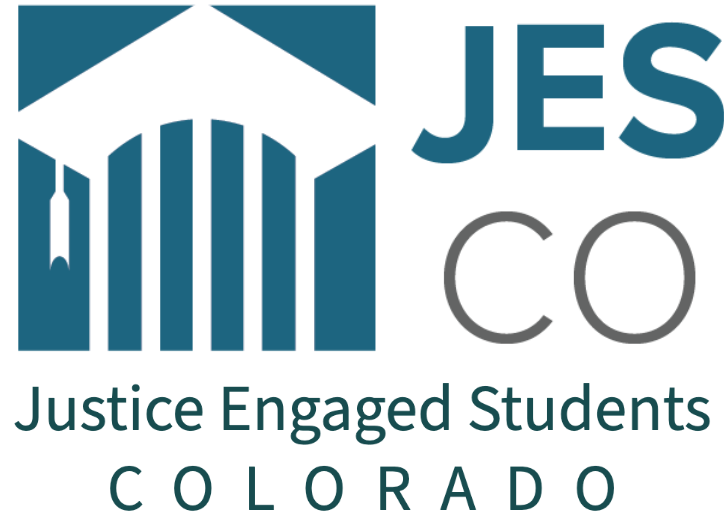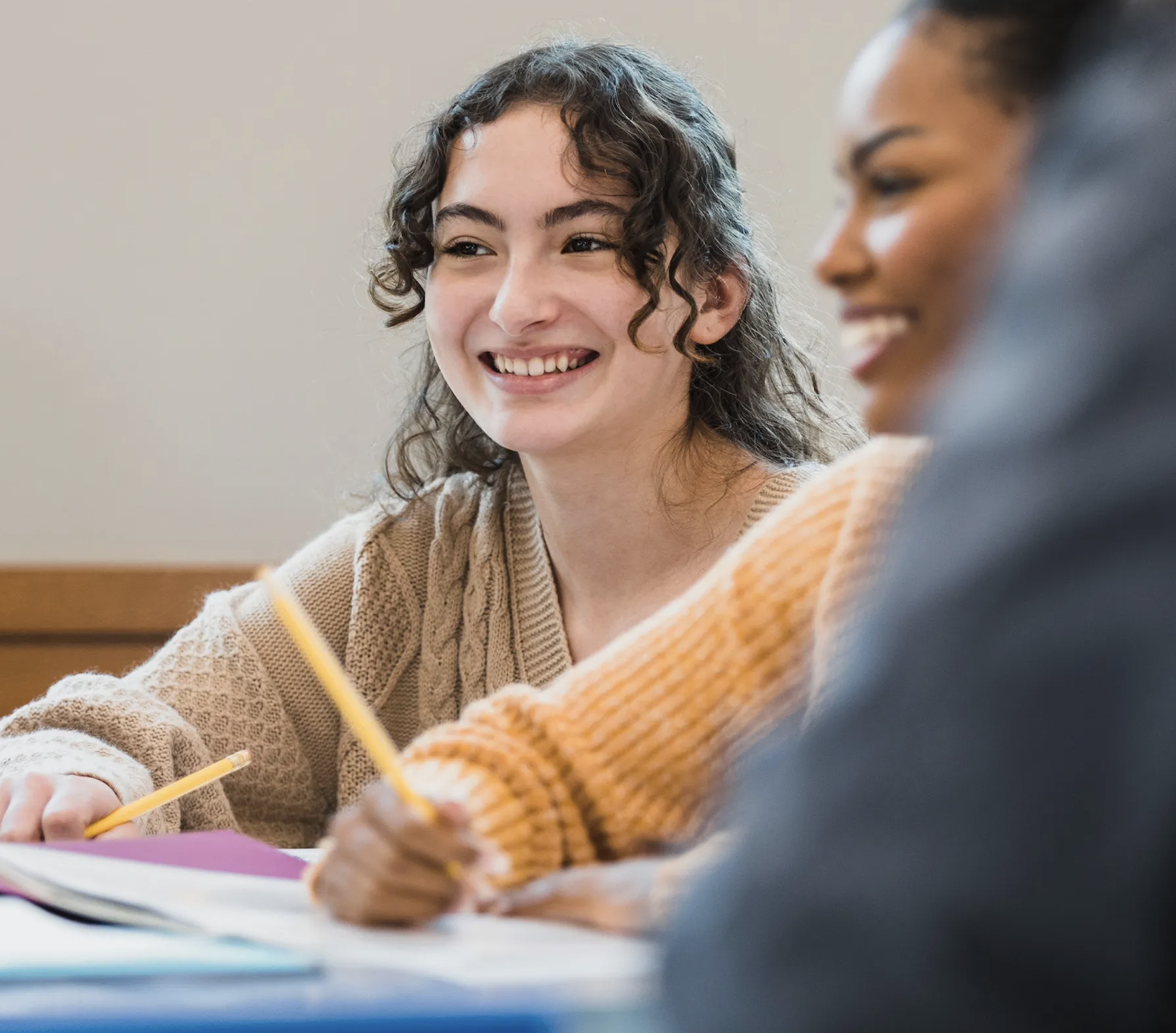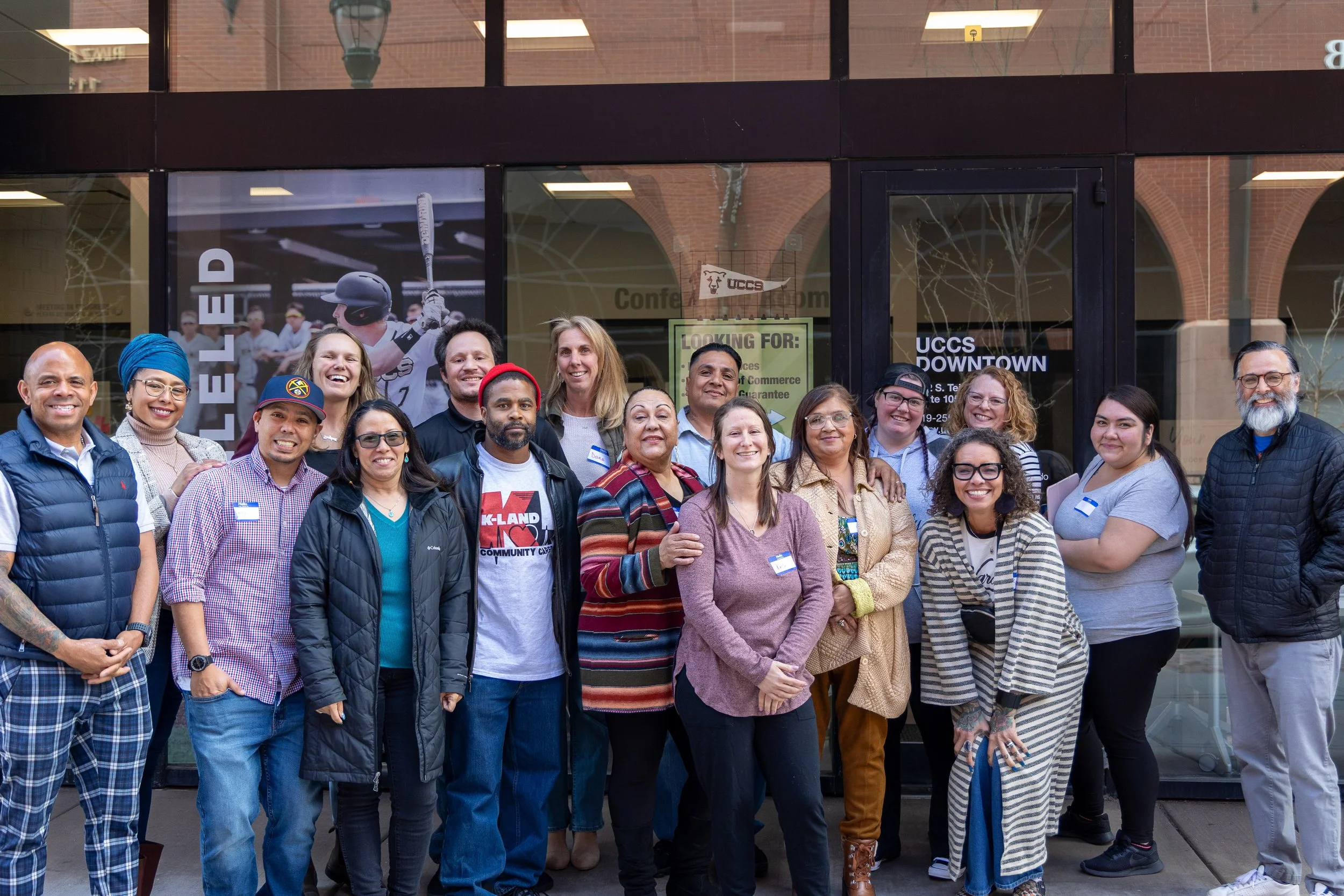
The Community Campus
What is the Community Campus?
One school. Two sites. Many pathways back to success.
Community Campuses are welcoming, high-support learning hubs designed for justice-engaged youth (and justice-adjacent peers) ages 14–21. We help students reclaim a path to a high school diploma and economic mobility through customized schedules, wraparound services, and real-world credentials.
Why it matters: Nationally, only about 1 in 5 justice-engaged students graduate high school—rates are even lower for youth locked up for 30+ days. Lack of a diploma limits health, earnings, and opportunity. Our model offers a fresh start—with the supports to make it stick.
Who It’s For
Eligibility
Age: 14–21
Designed for: Justice-engaged students (as defined by HB24-1216: any involvement with the justice system, including adjudication, probation, ticketing, detention, diversion, commitment, or community supervision) and justice-adjacent youth (close friends/family of justice-engaged students).
Cost: Free. This is a publicly funded school.
Diploma path: Credit and graduation are awarded through WonderEd (Cognia-accredited). A GED Next option may be available if it’s a better fit.
What You Get
Programs & Services
A holistic model built for real life. Students can access:
Academics & Diploma: Credit-bearing courses tailored to how each student learns best (leading to a WonderEd diploma).
College & Career: Career exploration, certification programs, internships, and support for college credit.
Job Readiness: Resume help, interview prep, and employer connections.
Mental Health & Substance Use Support: On-site/ on-call clinicians and connections to treatment.
Legal Navigation: Coordination with probation/courts, help understanding plans and requirements.
Basic Needs & Well-Being: Food supports, a self-care space, and daily check-ins to build skills (communication, conflict resolution, healthy habits).
Tutoring & Mentoring: Individualized support from staff and community mentors.
How It Works
Schedule & Format
Hours: Generally 9:00 AM–4:00 PM.
Flexible by design: Each student gets a custom schedule that may include on-site learning, certification programs, college coursework, internships, and community experiences.
Accessing services: Some supports are scheduled, some are drop-in, and others are coordinated through a case plan with your advocate/case manager.
Enrollment
Step by Step
1) Complete the quick online form (takes a few minutes).
2) Connect with a staff member who will guide you through documents and next steps.
3) Build your personalized plan—academics, supports, and career pathway.
Referrals welcome: Probation officers, caseworkers, and schools can start the process via the same form or by calling a campus director.
Campus Contacts:
Aurora Campus Director, Dr. Jose Silva: 720-882-1498
Colorado Springs Campus Director, Wendy Loloff Cooper: 720-299-0474
FAQ highlights (inline):
Is there a cost? No, it’s publicly funded.
In the middle of an expulsion hearing? Reach out—in many cases we can coordinate enrollment while we work with your previous school and the courts to support a smooth transition.
Documentation needed? We’ll walk you through it after you submit the form.
Partners
We work with WonderEd to award Cognia-accredited credit and high school diplomas. Students may also pursue GED Next if that’s the right fit. Beyond academics, we collaborate with community partners for vocational training, certifications, mental health services, legal navigation, and employment pathways.
“Interested in partnering or sponsoring? We’re seeking employers, training providers, service agencies, volunteers, and sponsors to expand credentials, internships, and wraparound supports.”
Safety & Belonging
Student Voice
Safety first: Secure buildings with controlled entry; only students, staff, and approved volunteers are admitted. Our facility hosts have deep experience serving justice-engaged youth. Clinicians/counselors are on-site or on-call, and staff coordinate directly with government agencies to understand needs and treatment plans.
Healing-centered environment:
Daily check-ins to practice communication, conflict resolution, and healthy habits
Self-care spaces on each campus
Personalized plans connecting each student to wraparound supports
Community-based activities and service projects for reintegration
Student voice built-in: The pilot year (2025–26) is intentionally flexible. Schedules, opportunities, and learning experiences are co-designed with students—and we iterate based on what’s working for them.
Additional Info
Contact:
Aurora Campus Director, Dr. Jose Silva: 720-882-1498
Colorado Springs Campus Director, Wendy Loloff Cooper: 720-299-0474
Quick Links:Enroll Now
Partner/Sponsor
Sample Schedules
Community Partners
Message to the community:
This is an innovative pilot developed in response to HB24-1216.
Led by Generation Schools Network (GSN) with established community partners and government agencies.
Volunteers and sponsors are needed to expand opportunities.
Our staff includes people with lived experience—we see the whole student, not just a case file.
Generation Schools Network (GSN) is leading the development and pilot of the Community Campus model in partnership with agencies, community organizations, and school personnel. Our goal is a replicable model—scaled by judicial district—to support the 20,000+ justice-engaged youth in Colorado in earning meaningful credentials and advancing toward economic mobility.







